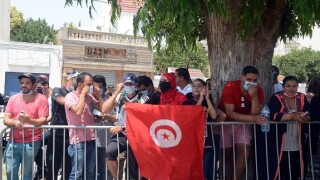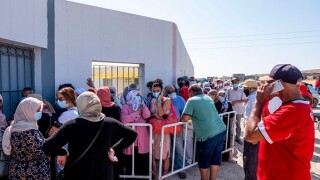Africa
-
The impact of the allocation of new IMF Special Drawing Rights (SDRs) on the most stressed developing economies could depend on whether a politically sensitive proposed reallocation of the assets from wealthier nations to vulnerable ones is successful. And though the new SDRs may reduce sovereign bond issuance, particularly in sub-Saharan Africa, not all investors believe there will be a notable effect on EM debt.
-
Bankers working on Rwanda’s second ever international bond on Monday said that the issuer was benefiting from its prudent approach to bond market borrowing, as analysts called the liability management exercise positive for the African sovereign’s debt management.
-
The Republic of Rwanda hit the market on Monday morning with a 10 year dollar benchmark.
-
Days after the Tunisian President Kais Saied shocked the world by freezing parliament and boosting his executive power, sources say that investors have little to be concerned about as conversations with the IMF continue to progress. The political saga, which some are calling ‘much-needed’, will not impact Tunisia’s ability to service its debt.
-
The Republic of Rwanda is set to return to the international bond market for a dollar bond, joining a club of sub-Saharan African sovereigns that have taken advantage of attractive funding conditions in recent weeks.
-
A decade after the Arab Spring erupted in Tunisia, the country has found itself once again in the throes of a political crisis, sending shockwaves through investors. The president’s abrupt seizing of executive power — which some have labelled a coup — poses yet another challenge for the country, though some said there may be buying opportunities on the horizon.
-
Bond market participants are eagerly anticipating a trade from Nigeria in the coming weeks, which would be the seventh sub-Saharan African sovereign new issue since the start of the year, with issuers making the most of the hunger for high yielding credits.
-
The Republic of Benin launched its debut SDG (Sustainable Development Goals) bond in its second international offering of the year, following a two year hiatus. Market participants say although deals like Benin’s are getting over the line, concerns are brewing over the sustainability of high yield sovereigns tapping investors so freely.
-
South Africa, historically one of the continent’s most favoured issuers, has come under intense investor scrutiny as it faces a wave of domestic unrest.
-
The Republic of Benin plans to be the first sub-Saharan African sovereign to tap the international bond market twice in 2021. The sovereign this week intends to sell a bond with a sustainability feature, making it one of the first in the region.
-
Simon Denny, whom Barclays hired as head of banking for South Africa in 2019, is no longer with the firm.
-
As the debate over emerging market debt restructuring rages on, market participants have expressed their frustration at the lack of clarity over the outcomes.











